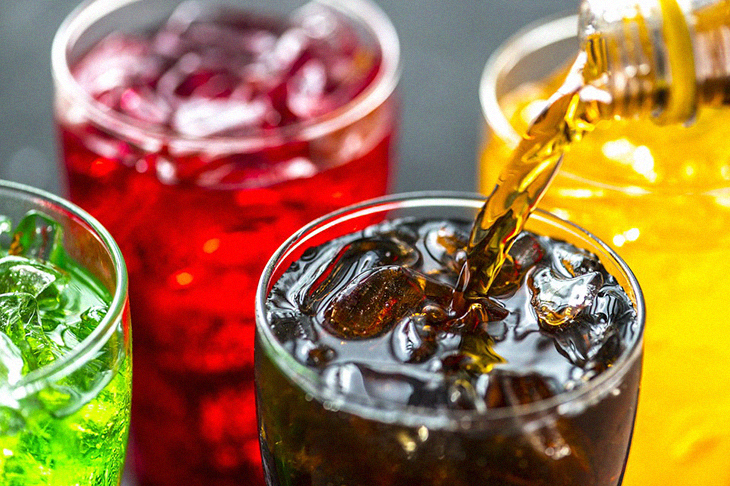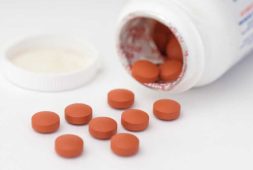
Every year, cardiovascular diseases kill as much as 17.9 million people all around the world.
An example of a metabolic disorder called Dyslipidemia (which means that the level of lipids in the blood is at an abnormal level) is among those disorders that doctors are avoiding because this can also cause cardiovascular disease. As specialists try to avoid this, they also know that they should get a better understanding of Dyslipidemia and the circumstances that add up to it. Hypertension, or commonly known as high blood pressure, and high blood sugar levels, diet, and cholesterol levels are also among other important things to factor in cardiovascular risks.

New research which appears in the Journal of the American Heart Association states that those who are very fond of drinks that are artificially sweetened could add to the higher risk of dyslipidemia and endanger cardiovascular health. They are also more at risk for cardiovascular disease caused by triglycerides at high levels and low HDL (high-density lipoprotein) cholesterol. According to Nicola McKeown, Ph.D. and a nutritional epidemiologist and a co-author of this study that if in the long run we just manage our cholesterol and triglycerides levels, it would make a big difference in preventing cardiovascular health like stroke or even a heart attack. Jean Mayer USDA Human Nutrition Research Center on Aging located at Tufts University in Boston, Massachusettes had their investigators leading this research.
For this study, 3,584 participants joined in between the years 2002 through 2011 and between 1991 through 2014, 3,146 participants jumped in. They were placed in two different groups enrolled in the Framingham Offspring Study and were the subjects used in gathering data to be analyzed for this study. The first team/group (the 3,146 participants who joined in between 1991 through 2014) whose data were analyzed were from the age groups of 50s, 60s, and 70s.
Researchers made estimates of the various beverage intakes of their participants. This was done through specialized surveys. The researchers’ access included a twelve-year period follow up (per four years on average) and measurements of their participants’ levels of triglyceride and HDL cholesterol.
By observing all the info, the researchers’ findings stated that participants who drank additional sugared beverages per day at the most recent follow-up examination had a 98% higher chance or risk of low HDL cholesterol at the next follow-up examination than those that seldom drank sweetened beverages. They additionally had a 535% higher chance of high triglycerides levels at that very same landmark.

The findings were also the same when the research team observed continuous (with a rough estimate of twelve years) consumption patterns of sweetened drinks. These findings are unfortunately bad news for the investigators: HDL which is also called “good” cholesterol as a result of its main task is to get rid of LDL or low-density lipoprotein or “bad” cholesterol from the blood before it can block the arteries, which may increase cardiovascular health risks.
The findings are the same for the researchers when they observed data gathered from the second group (which included people in their 40s, slightly younger than the first group). Surprisingly, higher triglyceride levels and lower HDL cholesterol levels were observed at their follow-up exams done every 4 years for those who drank more sugary drinks than those who seldom drank sugary drinks.
Even with this finding, the changes in the metabolic ability of the participants were not found to be definite in the younger group compared to the older group. This would make it difficult to confirm if their risk for dyslipidemia was increased or not. Danielle Haslam, Ph.D. who is the study’s first author states that the latest findings added to the increasing proof that avoiding sugary drinks would aid in maintaining good health for the longer term. She recognizes that they were not able to identify “unfavorable changes” in the younger age group of participants since they were too young to determine whether or not they would establish dyslipidemia at the time of the short follow-up period.
It is advisable to better choose simple water over other beverages (especially sugared ones), although there were no definitive facts about the connection between risks of dyslipidemia and intakes of diet drinks versus all-natural fruit juices. Even while taking in fruit juices that are tagged as all-natural or 100% fruit juices, the Dietary Guidelines for Americans 2015-2020 stated that it’s also advisable to have some limitation on consuming it and opt for whole fruits.
Nicola McKeown, Ph.D. concludes that dyslipidemia risks as a person ages are influenced by sugary drinks or artificially sweetened drinks.



